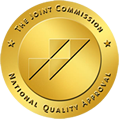Alcohol is one of the most widely used substances in the world, and because it’s legal and socially acceptable, it can be challenging to recognize when drinking crosses the line from casual to something more serious. Two closely related terms often used in this conversation are dependence and addiction – and while they’re similar, they aren’t identical.
Understanding the difference between alcohol dependence and alcohol addiction can help you decide when you need professional attention. At Ken Seeley Communities, we believe both conditions deserve empathy and care.
What Is Alcohol Dependence?
Alcohol dependence is a condition in which your body and brain have adapted to the presence of alcohol and begin to rely on it to function normally.
- Physical dependence occurs when you experience withdrawal symptoms if you reduce or stop alcohol use. These can include shakiness, sweating, headaches, nausea, insomnia, and irritability.
- Psychological dependence refers to reliance on alcohol to cope with stress, anxiety, or other emotions.
Once you become dependent on alcohol, your goal will shift from drinking to feel good to drinking to avoid feeling bad. Dependence can develop gradually and may seem manageable, which is why many people don’t seek help until more severe problems arise.
What Is Alcohol Addiction?
Alcohol addiction, also known as alcohol use disorder, is a more severe and chronic condition. While dependence is a component of addiction, addiction also includes a compulsive desire to drink despite adverse consequences.
Signs of alcohol addiction include:
- Loss of control over your drinking
- Prioritizing alcohol over responsibilities and relationships
- Continuing to drink despite health, legal, or financial problems
- Unsuccessful attempts to cut back or quit
- Needing more alcohol to achieve the same effect
- Spending a lot of time drinking or recovering from drinking
Addiction goes further than physical and psychological dependence – it changes the brain’s reward system and can distort your priorities, choices, and behaviors.
Don’t Ignore the Warning Signs
The transition from dependence to addiction isn’t always obvious. You may maintain the illusion of stability for a long time while physically or psychologically dependent on alcohol, but that doesn’t mean you don’t have a problem. Left untreated, dependence can progress into full-fledged addiction, which can cause significant harm.
You must take signs of dependence or problematic drinking seriously. Don’t wait until you hit “rock bottom” to ask for help. The earlier you seek treatment, the better your chances of lasting recovery.
Get Help at Ken Seeley Communities
At Ken Seeley Communities, we understand how difficult it can be to admit you need help with alcohol. Whether you’re struggling with dependence, addiction, or unsure where you fall on the spectrum, we’re here to provide answers and compassionate care.
Our holistic, evidence-based approach includes medically monitored detox, residential treatment, dual-diagnosis care, and transitional living support. We meet you where you are and guide you toward long-term sobriety through a personalized, compassionate plan.
If you or a loved one is showing signs of alcohol dependence or addiction, don’t wait. Contact us today and take the first step toward healing.



